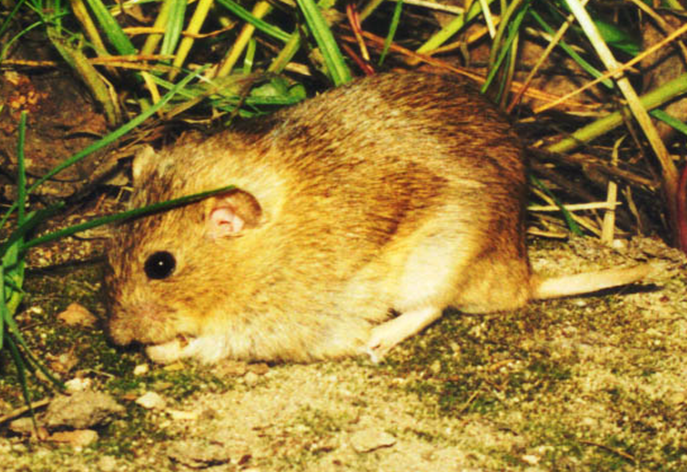
The social vole is a small herbivorous rodent that inhabits open plains and mountainous steppe regions, as well as semi-deserts of Syria, Turkey, Iran, the Caucasus, Russia, Kazakhstan, Turkmenistan and China. Field studies indicate that voles of this species live in small family groups consisting of one adult male, one or two breeding females and their offspring (one or two broods). The social vole is capable of year-round reproduction, but in arid regions it exhibits seasonal reproduction. This species is characterized by so-called social monogamy, when a married couple occupies a common habitat and raises offspring together, but it is possible for both sexual partners to mate with other individuals.
As a result, female broods may contain cubs from different males. Each family pair occupies a separate, protected habitat area. There is no dominance hierarchy in family groups of this species. The young usually disperse soon after emerging from the brood burrows to the surface. Married pairs demonstrate cooperation by jointly defending their territory, making burrows, clearing underground tunnels and raising young animals. Cooperation appears to contribute to the survival of family groups of this species in extreme climatic conditions.
Many features of the social behavior of the social vole were studied in detail during observations of them in enclosures at the Chernogolovka Research and Experimental Base of the Institute of Ecology and Evolution of the Russian Academy of Sciences in the Moscow region. Such observations are unique, since it is almost impossible to observe social voles in nature. The data obtained expand our understanding of the ecology and social behavior of rodents.
Based on the results of a review of literature data and long-term research on the study of the ecology and social behavior of the social vole (Microtus socialis Pallas 1773), conducted by V.S. Gromov, Doctor of Biological Sciences, leading researcher at the Laboratory of Behavior and Behavioral Ecology of Mammals of the Institute of Ecology and Evoution of the Russian Academy of Sciences, an article in Current Zoology was published.
Gromov V.S., 2023. Ecology and social behavior of the social vole, Microtus socialis: A generalized review // Current Zoology V. 69. P. 775-783. doi: 10.1093/cz/zoac081
